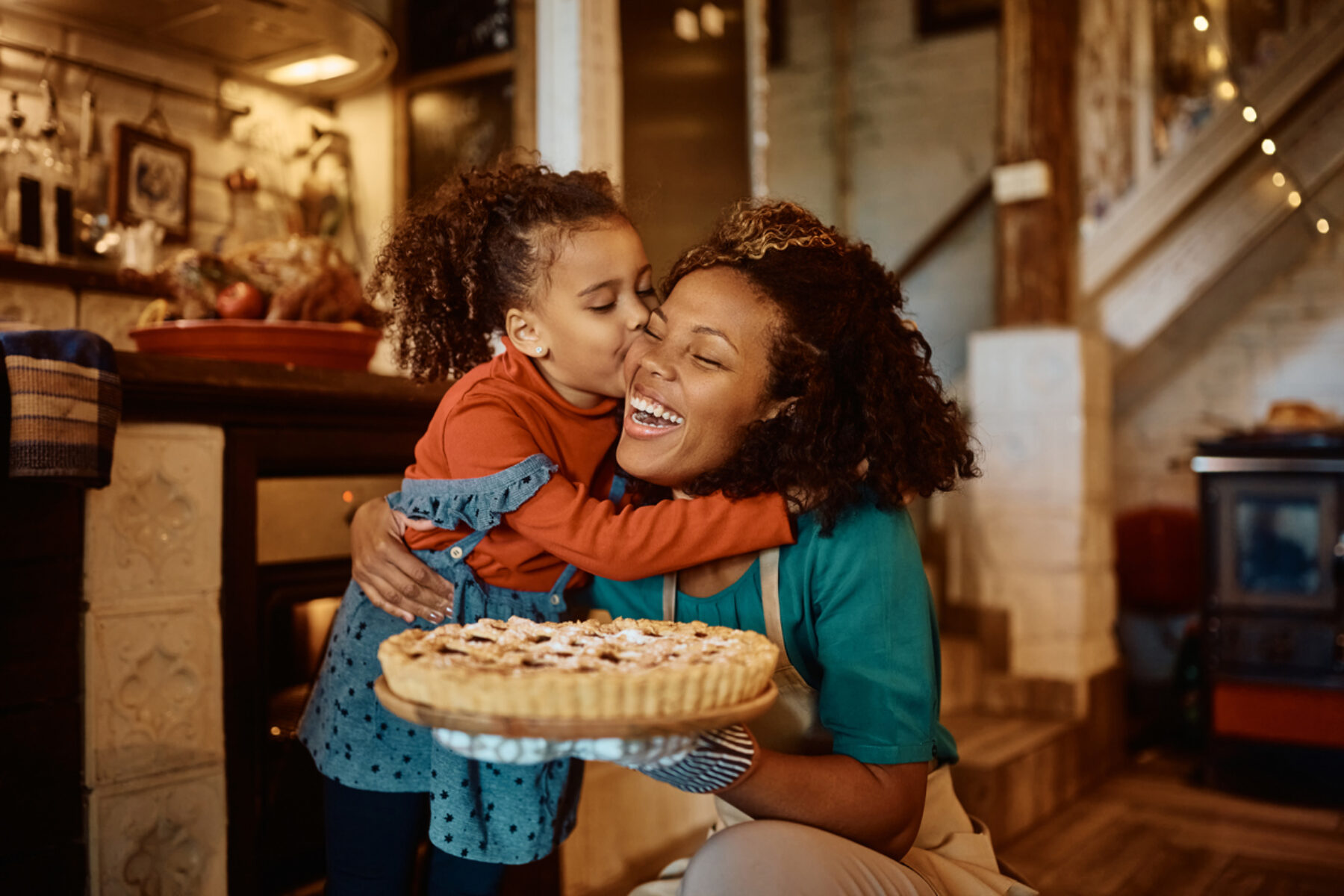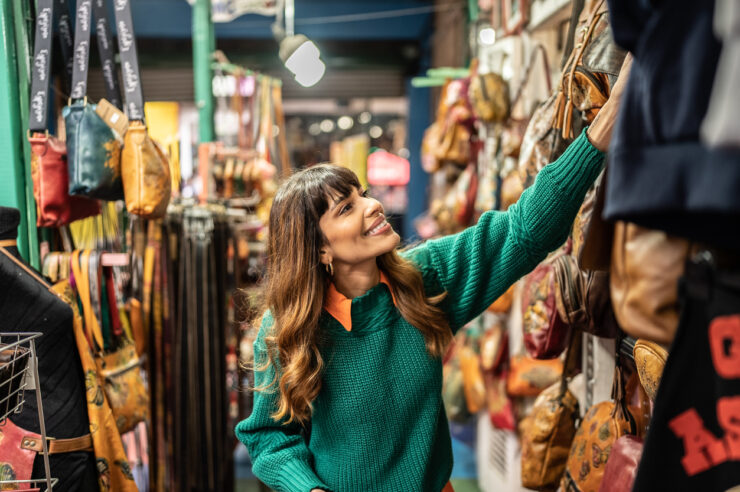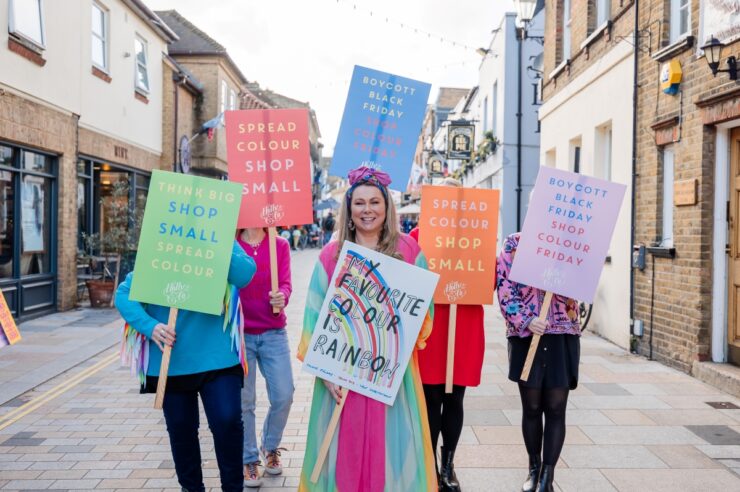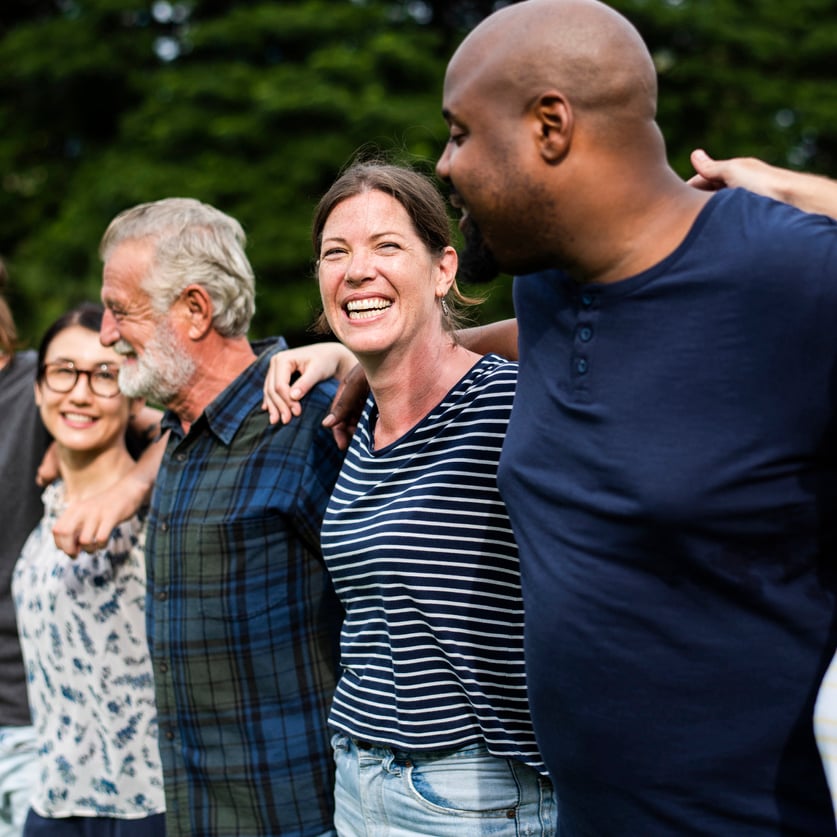‘Tis the season to buy, buy, buy, but Positive News readers are choosing to do things differently this Christmas. This is what you told us
Fresh family traditions
We have a tradition in our family involving a reusable wooden advent calendar for our daughter. Behind each door, we place personalised messages, inspiring us to bond as a family and consider the wellbeing of others. Activities range from donating to a chosen charity, contributing to a food bank, to enjoying a walk in the countryside. It’s a meaningful way for us to celebrate the season and instill values of togetherness and kindness in our daughter.
– James, Norwich, UK
We have a new family tradition of doing a big jigsaw puzzle over the holiday. It occupies our table and we have a go adding pieces whenever we want. My brain really calms down and it’s so satisfying when the pieces fit.
– Kate, Japan
[We take part in a] family Jolabokaflod – an Icelandic tradition, of gifting books at Christmas. We pick names from a hat and each of us gives one adult in the extended family (and all of the children!) a secondhand book, chosen with a lot of thought and love, and a small chocolatey treat to go with it. Then we can all settle down at Christmas and have a cosy read!
– Kate, UK
Supporting good causes
I try to spend money in ways that are impactful for local groups and the economy. A favourite: tickets to upcoming events and shows featuring local artists and groups. It lets me support local music and theatre – and still feels like a nice surprise for the person I give it to. (And then I get to go with them, which may be the best part.)
– Marla, Canada
Bringing nature to the fore
Last year I found a big dead branch in the woods to be the tree and with lights and baubles on, it looked great. It went in the garden to break down naturally in January. I wrap in tissue paper because it seems to use much less paper.
– Alyson, Godalming, UK
We celebrate winter solstice rather than Christmas, which is on 22 December. Each family member receives a book to read over the winter months, and we cook a delicious meal together. We decorate the table with natural things like holly leaves and acorns, and we take the time to reflect on what we are grateful for and what we would like to look forward to over the next year. Celebrating the solstice helps us feel more connected to the seasons. Although we were historically a big Christmas family, we all found it quite a relief to stop rushing around buying stuff and visiting people on the 25th.
– Rachel, Yorkshire, UK

Beyond the bauble: sourcing natural decorations was a common theme in your responses. Image: Freddy Kearney
More meaningful gifts
Since my hobby is bookbinding, I make diaries for my children and grandchildren every year – they can choose their book cloth, format, everything. It solves my problem of what to get them, the presents are actually useful, and I’m kindly remembered throughout the year!
– John, Somerset, UK
I do a mix of gifting secondhand or vintage items, gifting handmade, shopping ethically, and sharing experiences. I also try to think about the whole lifespan of what I buy. Is it biodegradable? Is it pass-down-able? Is it going to be cherished – or be landfill? I look all year long, and make gifting a thoughtful act.
– H.E.C, Toronto, Canada
Time together rather than stuff
We don’t give gifts. Instead we spend time together, cooking and crafting during holidays. I repurpose the ornaments year after year. I also have a no-buy Christmas policy. To avoid monotony, I decorate every year differently with the same Christmas decorations.
– Shubha, Canada
Every year we’ve scaled back more and more on buying ‘stuff’ and put more emphasis on spending time with one another. Christmas in our house means family gatherings in PJs to watch holiday movies, walks with hot cocoa to look for light displays in the neighbourhood or driving ‘thru’ larger displays while listening to Christmas music. We don’t buy gifts for adults but I will host a dinner for our extended family where I provide all the food as my gift to them.
– Kristin, Florida, US

Many of you turn to baking and crafting as a way to bring meaning to the festive season. Image: Jonathan Taylor
A food-first approach
I tend to give food as gifts, and homebake things if I can, which are appreciated as more personal gifts than ‘stuff from the shop’ and don’t create waste as they get eaten! It does result in Christmas Eve being a bit of a work day to get everything ready though. For several years now I’ve designed my own Christmas card every year, which I hand draw and digitally colour and print. These get really good reactions and are enjoyable to draw, and it’s much cheaper to buy card blanks than commercial cards!
– Simon, UK
Each year we do secret santa in our family. On a weekend just before Christmas, we all get together and head to an old antique shop. With a limit of just £20, all our Christmas shopping is done in one morning and afterwards we go home and celebrate with a big lunch. It is a tradition which I love, Christmas is about being with those who make you happy. The presents are only tokens.
– Georgie, France
Putting the brakes on impulse buying
I no longer follow any news channels of any kind. For 22 years and running, I’ve not had television. I have ad-blockers installed and any subscription-based service I have (Spotify and YouTube) is premium. So you could argue that I have effectively removed nearly all possibilities of advertising to reach me. I have a non-consumer mindset: I am happy with what I own and do not need any new stuff.
– Vincent, Netherlands
I ask myself: is this item something I can live without? Will I be happy to have bought it come January, or next June? Am I going to continue to use it, or will it go into a box after the holidays are over? Is this replacing something that is broken or missing? Could I rent or borrow one? Could I reasonably make this myself? Asking myself these questions puts the brakes on impulse-purchasing just because I see a sale sticker.
Similarly, I try to buy ‘experiences’ rather than items. What I really want out of the holiday season is togetherness, community, peace, goodwill and joy. By reminding myself that what I want is a feeling, not an object, I free myself from many unnecessary purchases.
– Aspen D, US
A planet-first approach
My wife and I buy everything we can from secondhand stores and recycle or donate everything we no longer need. Our motto has been reuse, repurpose recycle for the past 30 years. We have seen others’ perception of us being cheap change to a perception of common sense and saving the planet.
– Lawrence, San Diego, US
I try to buy more secondhand pieces from Depop or Vinted. This way I can buy better items for a more affordable price and give them a second life and my style is more unique. When I want to buy something, I try to wait a week to see if it’s still in my mind. I also research companies’ sustainability [credentials] before I buy from them and try to avoid fast fashion or unethical companies all together.
– Leah, London, UK
Prioritising relaxation
It started many years ago with ‘do you have the receipt?’, then ‘I’ll buy you this, you buy me that’, and then came the breakthrough: ‘let’s have a present amnesty’. No need for anyone to stress out shopping at the most unpleasant time of year, no pretending to be a sardine on the London Tube, no need to buy to order (on someone else’s artificially imposed schedule). December can be a very relaxing month (if you do it right), and there are mince pies!
– Mike, London, UK
Main image: Drazen Zigic
You’re the solution that Positive News needs
Our small, dedicated team is passionate about building a better alternative to the negative news media. And there’s never been a greater urgency to our mission.
But to invest in producing all the solutions journalism that the world is longing for, we need funding. And because we work in your interests – not those of a wealthy media mogul or corporate owner – we’re asking readers like you to get behind our team, by making a regular contribution as a Positive News supporter.
Give once from just £1, or join 1,200+ others who contribute an average of £3 or more per month.
Join our community today, and together, we’ll change the news for good.






